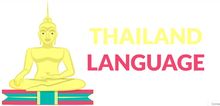When someone aims to become a Thai language professional interpreter Thailand, it is necessary to understand that the job requires strong language ability, cultural awareness, and excellent communication skills. Interpreting is not just about translation; it involves accurately conveying meaning, tone, and context between speakers.
Strong Command of Thai and Second Language
A professional interpreter must have a high-level understanding of Thai along with another language, commonly English, Chinese, or Japanese. Both spoken and written skills must be strong to interpret accurately in business meetings, legal settings, medical situations, and tourism fields.
Clear Pronunciation and Listening Skills
Pronunciation plays a key role in Thai, as it is a tonal language. Interpreters must listen carefully, understand tone differences, and deliver clear speech so that meaning is not changed. Active listening and quick response are essential.
Cultural Knowledge and Etiquette
Understanding Thai culture, manners, and social rules is important. Interpreters must know when to use formal or respectful language, and how to maintain polite communication. Cultural mistakes can lead to misunderstandings.
Strong Memory and Note-Taking Ability
Interpreting often requires quick thinking and memory retention. Professionals must remember information accurately and take useful notes during conversations to ensure correct translation.
Professional Ethics and Confidentiality
Interpreters deal with important information. They must maintain confidentiality, be neutral, and avoid adding personal opinions. Professional attitude and honesty are necessary for trust.
Familiarity With Specialized Vocabulary
Depending on the work field, an interpreter may need knowledge in:
Business and finance terms
Medical terminology
Legal and government language
Tourism and hospitality vocabulary
Understanding industry-specific terms improves accuracy and professionalism.
Training and Certification
Formal interpreter training or certification increases credibility. Many interpreters study language and communication programs or attend interpreting courses in Thailand and abroad.
Conclusion
To succeed as a Thai language interpreter, one must master language skills, cultural understanding, listening ability, professionalism, and industry-specific knowledge. With continual learning and practice, individuals can build a strong career in Thailand’s growing multilingual environment.

